Introduction
What is Roof Waterproofing? Roof waterproofing is a process that protects your roof from water damage by creating a barrier to prevent water from penetrating the surface. It is an essential part of home and building maintenance, helping to keep your roof in good condition and ensuring that your property remains safe from the elements.
Why is Roof Waterproofing Important? Water is one of the most damaging forces a roof can face. If water seeps into your roof, it can cause leaks, mold growth, and structural damage. Over time, these issues can become expensive to fix and may affect the overall safety of your home or building. Waterproofing helps prevent these problems, extending the life of your roof and keeping your property in good shape.
Purpose of the Post The purpose of this post is to explain why roof waterproofing is so important and highlight the benefits it brings. Whether you are a homeowner or a property manager, understanding the value of roof waterproofing can help you make informed decisions about protecting your investment. Investing in professional roof waterproofing services can save you money on repairs, improve energy efficiency, and increase the overall lifespan of your roof. In the following sections, we will explore the key advantages, common issues caused by poor waterproofing, and how to choose the right service to keep your roof in top condition.
By the end of this post, you'll understand why roof waterproofing is a smart decision for anyone looking to protect their home or building from the harmful effects of water damage.
What is Roof Waterproofing?

Understanding Roof Waterproofing Roof waterproofing is a process that adds a protective layer to your roof to prevent water from entering and causing damage. It creates a barrier that keeps rain, snow, and moisture from penetrating the roof’s surface. This is important because water damage can weaken the structure of your roof, leading to leaks, mold, and even structural damage over time. Without proper waterproofing, roofs are vulnerable to cracks, holes, and deterioration caused by exposure to weather conditions.
Types of Roof Waterproofing Methods There are several types of roof waterproofing methods used in the industry. Each method offers unique benefits depending on the type of roof and the specific needs of the building.
- Liquid Waterproofing Membrane
This is one of the most common waterproofing methods. A liquid coating is applied to the roof, which then hardens and forms a waterproof layer. It is flexible and can expand or contract with temperature changes, making it suitable for various roof types. - Bituminous Membrane
A bituminous membrane is made of asphalt or tar and is commonly used on flat roofs. It is applied in sheets and provides excellent protection against water infiltration. This method is durable and resistant to weathering. - Polyurethane Waterproofing
Polyurethane waterproofing is a popular choice for flat or low-slope roofs. It is a liquid-applied system that forms a seamless waterproof barrier. It is known for its strong adhesive properties and resistance to extreme weather conditions. - Cementitious Waterproofing
This method uses cement-based materials to create a waterproof layer. It is mostly used on concrete roofs and is effective for areas with high moisture levels.
By choosing the right waterproofing method, you can protect your roof from water damage and ensure it remains in excellent condition for years to come.
Why Roof Waterproofing is Essential
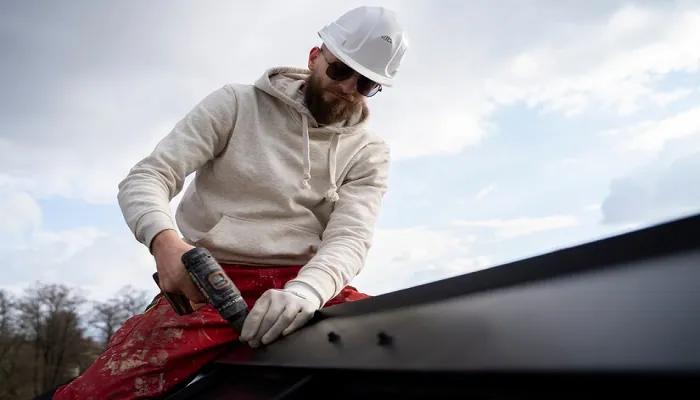
Protection Against Water Damage
One of the main reasons roof waterproofing is crucial is to protect your home from water damage. Water can seep through cracks and weak points in the roof, leading to issues like mold growth, rot, and structural damage. Waterproofing acts as a barrier that prevents water from entering your roof, keeping it safe from these problems. Without proper waterproofing, even a small amount of water can cause significant damage over time.
Prevention of Leaks and Moisture Buildup
Roof leaks are a common issue in homes with poor or no waterproofing. A leaky roof not only causes inconvenience but can also damage ceilings, walls, and insulation inside the home. Waterproofing ensures that rainwater and moisture stay outside, where they belong. It also helps prevent moisture buildup, which can lead to mold and mildew. Keeping your home dry and leak-free is essential for maintaining a healthy living environment.
Impact on Overall Roof Longevity and Durability
Waterproofing significantly extends the life of your roof. A well-waterproofed roof is less likely to develop cracks, holes, or other types of wear caused by water exposure. This durability means that your roof will last longer, saving you money on repairs or replacements. Over time, waterproofing pays off by reducing maintenance costs and increasing the roof’s resistance to extreme weather conditions like heavy rain, snow, or humidity.
In summary, roof waterproofing is essential for protecting your home from water damage, preventing leaks, and ensuring the long-term durability of your roof. Investing in waterproofing today can save you from costly repairs and headaches in the future.
Common Issues Caused by Poor Waterproofing
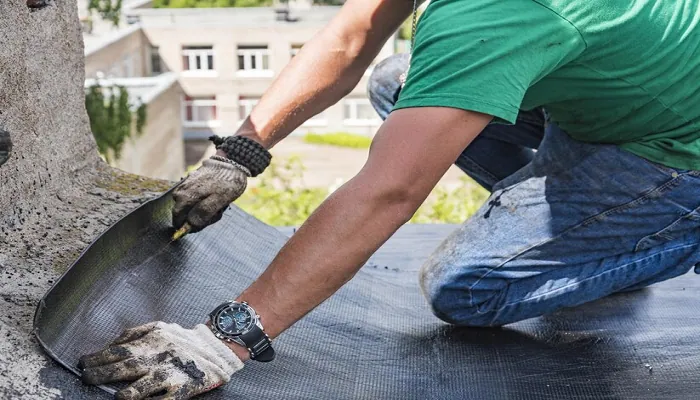
Water Leaks and Damage to the Building Structure
Poor roof waterproofing can lead to water leaks, which cause significant damage to a building's structure. When water finds its way through cracks and weak spots in the roof, it can seep into the ceilings, walls, and even the foundation of a building. Over time, this can weaken the structure, leading to costly repairs. Water damage may also cause wooden beams to rot or metal parts to rust, making the building less stable and safe.
Mold and Mildew Growth Due to Trapped Moisture
One of the most common problems caused by poor waterproofing is the growth of mold and mildew. When moisture gets trapped inside a building, especially in dark, damp areas, it creates the perfect environment for mold to thrive. Mold not only looks unpleasant, but it can also cause health problems, such as allergies and respiratory issues. In severe cases, mold can spread throughout the home, making it difficult to remove and requiring professional help.
Increased Maintenance and Repair Costs
Without proper waterproofing, buildings are more likely to suffer from ongoing water-related issues. As water damage accumulates, homeowners will face higher maintenance and repair costs. Regular leaks, damaged insulation, and water stains all add up over time. Additionally, repairs caused by poor waterproofing are often more expensive than the initial investment in waterproofing services. Fixing structural damage, replacing rotting materials, or removing mold can be much more costly than simply applying waterproofing measures in the first place.
In conclusion, poor waterproofing can result in severe problems, including water leaks, mold growth, and increased repair costs. Proper waterproofing can help prevent these issues and protect the long-term integrity of a building.
Types of Roof Waterproofing Services
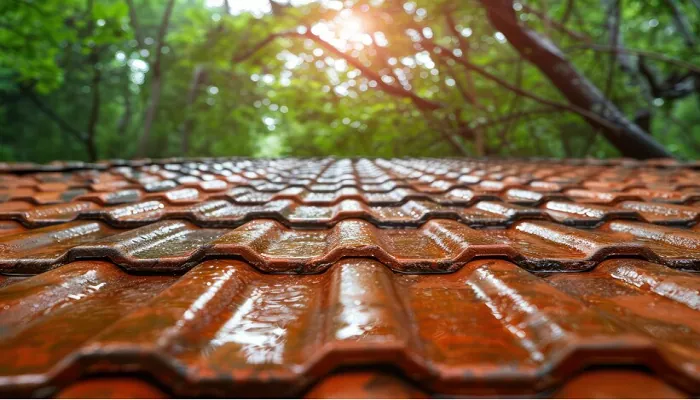
Membrane-Based Systems
One common type of roof waterproofing service is the use of membrane-based systems. These systems involve laying sheets or rolls of waterproof material, such as rubber or synthetic polymers, over the roof to create a barrier that prevents water from seeping through. Membrane systems are durable and offer excellent protection against water leaks. Some membranes, like EPDM (Ethylene Propylene Diene Monomer) and TPO (Thermoplastic Polyolefin), are especially popular for flat roofs because of their flexibility and ability to withstand extreme weather conditions.
Liquid Waterproofing Solutions
Liquid waterproofing is another effective option. In this method, a liquid solution is applied directly to the roof surface, where it dries and forms a seamless, waterproof layer. This type of waterproofing is great for roofs with irregular shapes or areas that are hard to reach. The liquid solution can be made from various materials, including polyurethane, acrylic, or silicone. Once applied, it provides a smooth finish that prevents water from pooling or penetrating the roof. Liquid waterproofing solutions are highly flexible and can expand or contract with temperature changes, making them ideal for climates with varying weather conditions.
Bituminous Coating and Other Advanced Methods
Bituminous coating is a traditional waterproofing method that uses asphalt-based materials. This coating can be applied to flat or sloped roofs and is known for its ability to resist water and protect against leaks. It’s a cost-effective option that also provides protection against UV rays. In addition to bituminous coatings, there are other advanced methods like green roofs, which combine waterproofing with vegetation to provide environmental benefits, and metal roof waterproofing, which uses specialized coatings to protect metal surfaces from rust and water damage.
In summary, roof waterproofing services include membrane-based systems, liquid waterproofing solutions, and bituminous coatings, each offering unique benefits for different types of roofs.
Signs Your Roof Needs Waterproofing
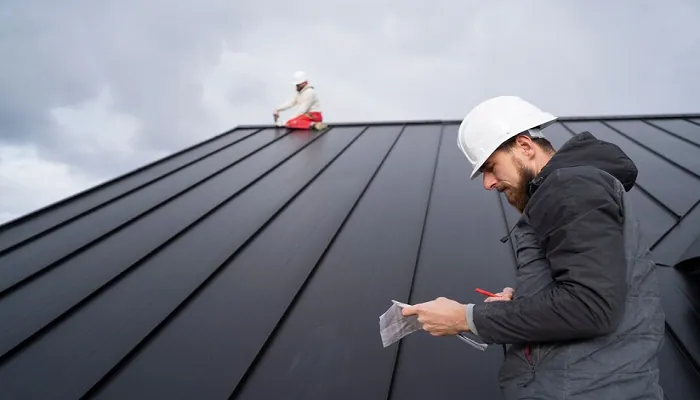
Visible Cracks or Gaps in the Roofing Material
One of the most obvious signs that your roof needs waterproofing is the presence of visible cracks or gaps in the roofing material. Over time, weather conditions such as heat, rain, and wind can cause the roof's surface to weaken, leading to cracks or openings. These gaps allow water to seep into the building, potentially causing damage to the structure. If you notice cracks, tears, or other visible damage on your roof, it’s a clear indication that waterproofing is needed to protect your home from water-related issues.
Water Stains on Ceilings or Walls
Another common sign that your roof may need waterproofing is the appearance of water stains on your ceilings or walls. These stains are often brown or yellow and are caused by water leaking through the roof and into your home. If you spot water stains, it’s important to address the issue quickly. This could indicate that your roof is not properly sealed and that water is penetrating through weak points. Left untreated, these leaks can lead to more serious problems, such as mold growth or structural damage.
Pooling Water or Visible Leaks After Heavy Rain
If you see water pooling on the roof or notice visible leaks after a heavy rainstorm, it’s a sign that your roof is not properly waterproofed. Pooling water can be particularly problematic on flat roofs, where water doesn’t drain off as easily. When water accumulates in certain areas, it can seep through small openings in the roof and cause damage. Leaks inside your home, especially near windows or in the attic, are also clear indicators that the roof needs attention. Waterproofing can help prevent these issues and ensure your roof remains strong and leak-free.
Benefits of Professional Roof Waterproofing Services
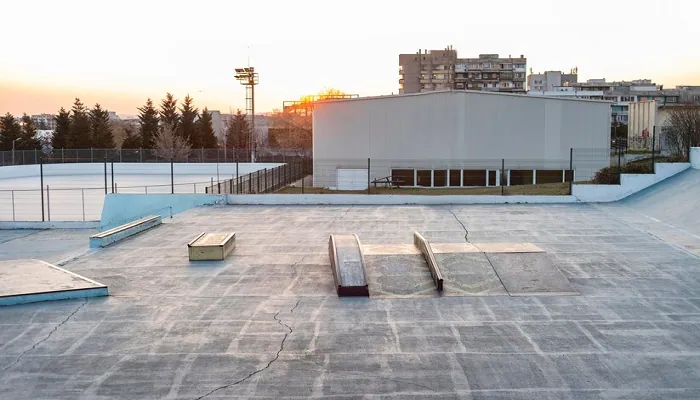
Long-Term Cost Savings Through Reduced Repairs
One of the biggest advantages of professional roof waterproofing services is the long-term cost savings. By properly waterproofing your roof, you can avoid frequent repairs caused by water damage. Leaks, moisture buildup, and other water-related problems can lead to expensive fixes over time. Investing in professional waterproofing helps protect your roof from these issues, reducing the need for constant maintenance and saving you money in the long run.
Improved Energy Efficiency by Preventing Heat Loss
Another benefit of roof waterproofing is improved energy efficiency. When a roof is properly sealed and waterproofed, it prevents heat from escaping during the winter and keeps cool air inside during the summer. This helps maintain a comfortable indoor temperature, reducing the strain on your heating and cooling systems. As a result, you’ll notice lower energy bills and a more energy-efficient home. A well-insulated, waterproof roof can make a big difference in your home’s energy performance.
Enhanced Property Value and Structural Integrity
Professional roof waterproofing services also contribute to the overall value of your property. A well-maintained and waterproofed roof is a key feature that buyers look for when purchasing a home. It enhances the property's curb appeal and demonstrates that the house has been well taken care of. In addition to boosting property value, waterproofing also strengthens the roof’s structural integrity. It prevents water from weakening the materials and causing long-term damage, helping your roof last longer and remain strong over time.
In summary, professional roof waterproofing provides essential protection, energy efficiency, and long-term savings, making it a smart investment for any homeowner.
Choosing the Right Waterproofing Service
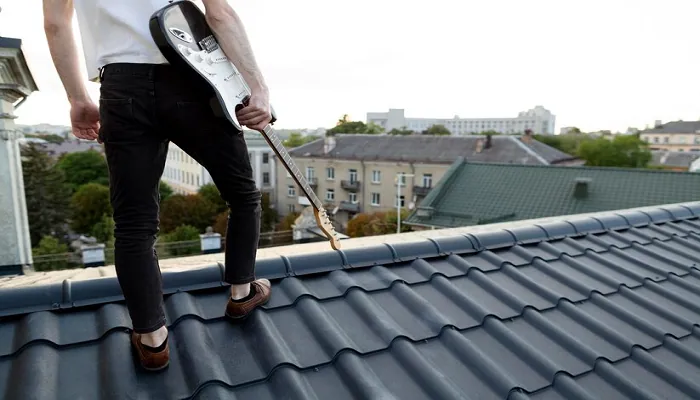
Factors to Consider When Hiring a Professional Waterproofing Service
Choosing the right waterproofing service is essential to ensure your roof is protected for the long term. The first factor to consider is the company’s experience and reputation. Look for a service provider with a strong track record in roof waterproofing. You can check customer reviews or ask for references to see how reliable their work is. Additionally, make sure the company is licensed and insured. This guarantees that the professionals handling your roof are qualified and that you are protected in case of accidents or damage.
Another important consideration is the range of services offered. Different roofs require different waterproofing solutions. Make sure the service provider offers the specific type of waterproofing method that suits your roof. Ask about the types of materials they use and their approach to the job. A reputable company should also be able to provide a clear, detailed estimate of the cost before the work begins.
Importance of Warranties and Quality Materials
When selecting a waterproofing service, it’s crucial to ensure they offer warranties on their work. A warranty gives you peace of mind, knowing that if any problems arise after the waterproofing is completed, the company will fix it without additional costs. A solid warranty reflects the company’s confidence in the quality of their work and materials.
Additionally, the quality of materials used is key to the durability and effectiveness of your roof waterproofing. Ensure the service provider uses high-quality, durable materials that are suited to your roof's specific needs. Quality materials not only improve performance but also increase the lifespan of the waterproofing, meaning fewer issues down the road.
In summary, hiring the right waterproofing service involves considering experience, the range of services, warranties, and the quality of materials. These factors ensure a long-lasting, effective roof waterproofing solution.
Roof waterproofing is essential for protecting your home from water damage and ensuring its longevity. Without proper waterproofing, your roof can suffer from leaks, moisture buildup, and structural issues, which can lead to costly repairs. By investing in high-quality waterproofing, you safeguard your property from these problems, improve energy efficiency, and enhance your home’s value. Although it may require an initial investment, the long-term benefits include fewer repairs and a longer-lasting roof. Make sure to choose a reputable professional and use quality materials for the best results. Investing in roof waterproofing is a wise choice for maintaining a safe and dry home.
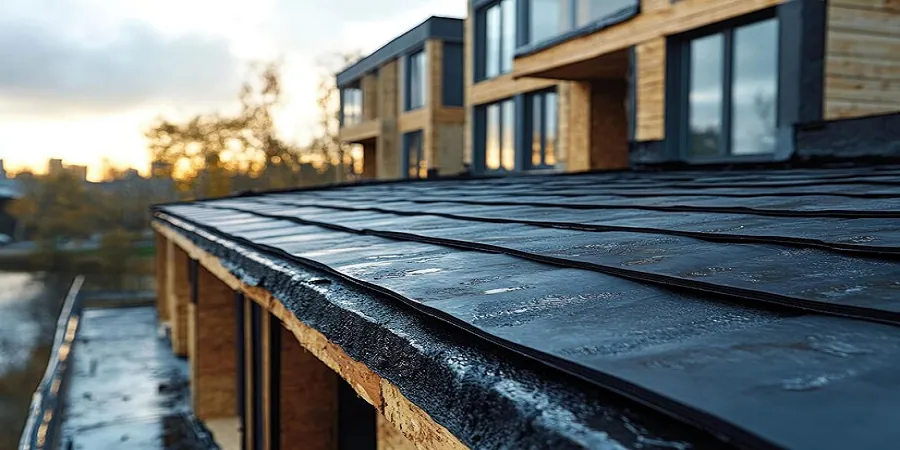
Comments